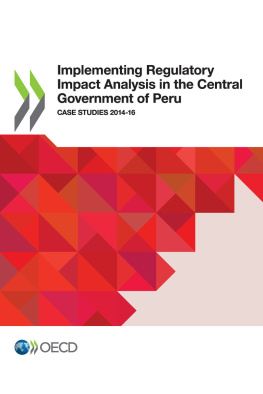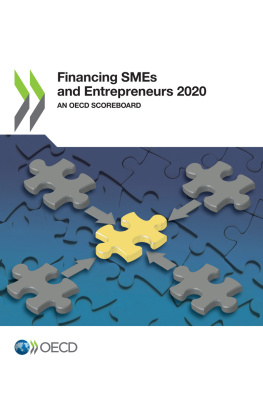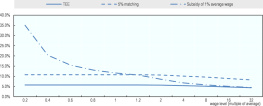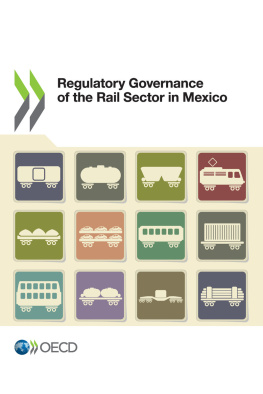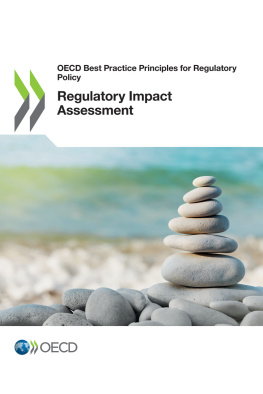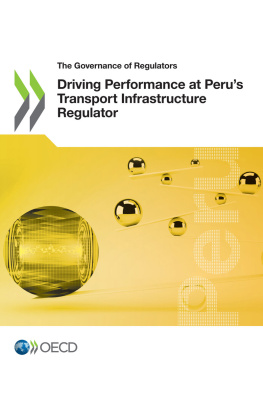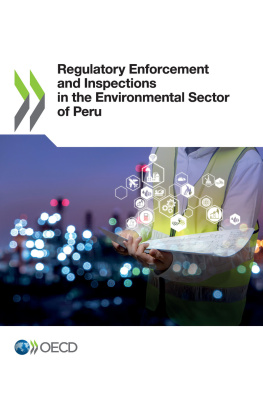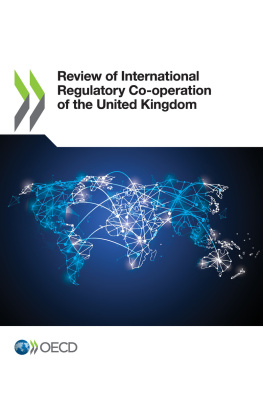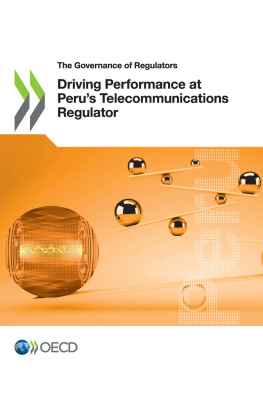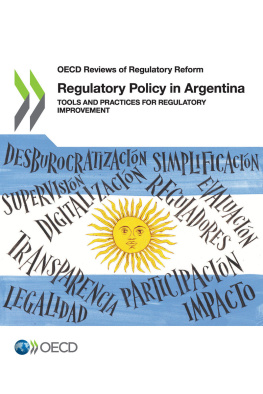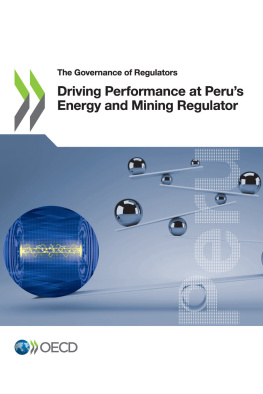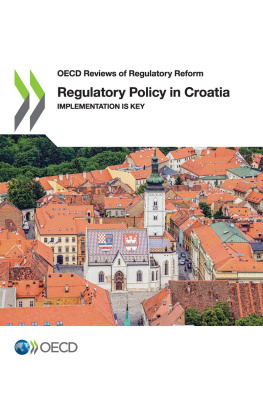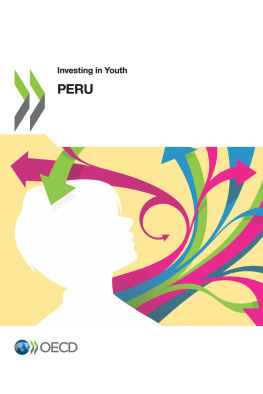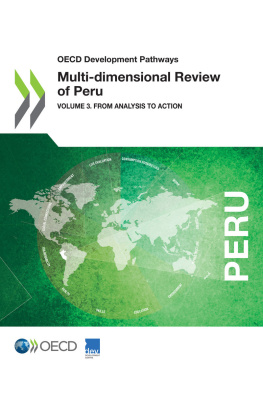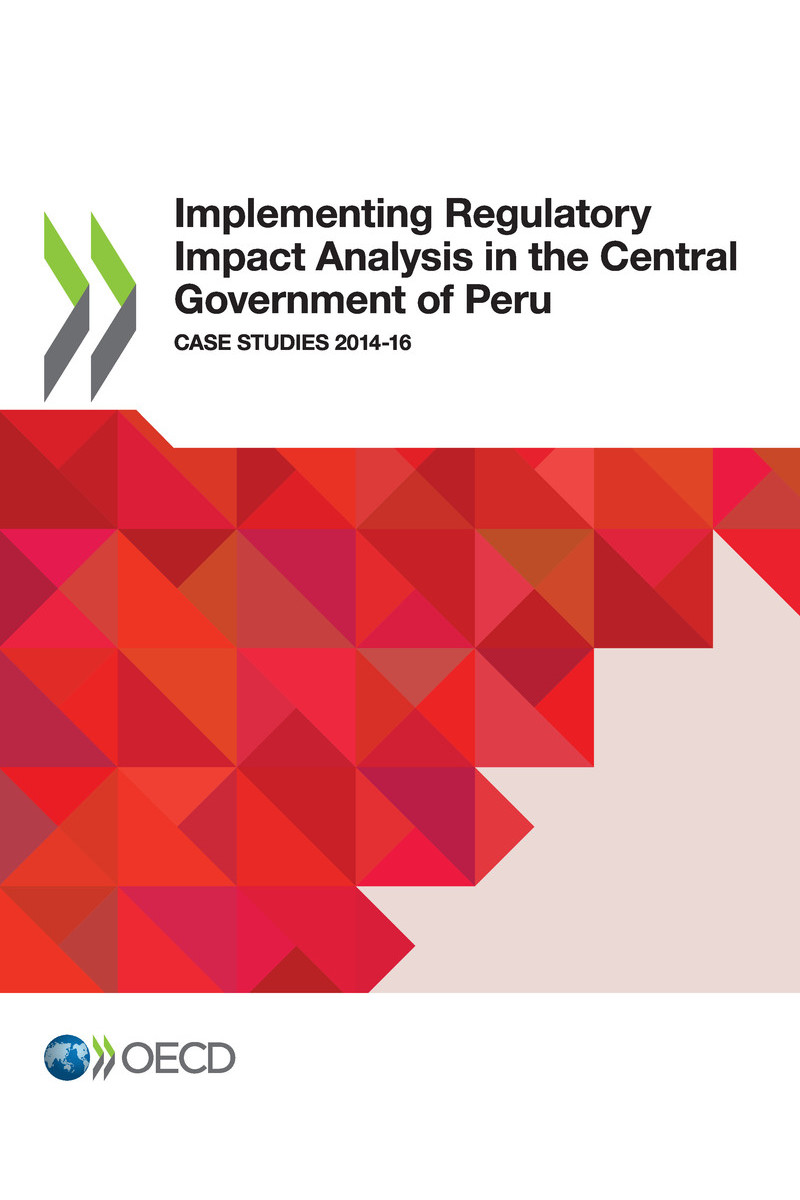Implementing Regulatory Impact Analysis in the Central Government of Peru Case Studies 2014-16
Please cite this publication as:
OECD (2019), Implementing Regulatory Impact Analysis in the Central Government of Peru: Case Studies 2014-16 , OECD Publishing, Paris, https://doi.org/10.1787/9789264305786-en .
Metadata, Legal and Rights
ISBN: 978-92-64-30577-9 (print) - 978-92-64-30578-6 (pdf) - 978-92-64-88667-4 (HTML) - 978-92-64-68946-6 (epub)
DOI: https://doi.org/10.1787/9789264305786-en
This work is published under the responsibility of the Secretary-General of the OECD. The opinions expressed and arguments employed herein do not necessarily reflect the official views of OECD member countries.
This document, as well as any data and any map included herein, are without prejudice to the status of or sovereignty over any territory, to the delimitation of international frontiers and boundaries and to the name of any territory, city or area.
The statistical data for Israel are supplied by and under the responsibility of the relevant Israeli authorities. The use of such data by the OECD is without prejudice to the status of the Golan Heights, East Jerusalem and Israeli settlements in the West Bank under the terms of international law.
Photo credits: Cover Natali Eki/Shutterstock.com.
Corrigenda to OECD publications may be found on line at: www.oecd.org/about/publishing/corrigenda.htm .
OECD 2019
You can copy, download or print OECD content for your own use, and you can include excerpts from OECD publications, databases and multimedia products in your own documents, presentations, blogs, websites and teaching materials, provided that suitable acknowledgement of OECD as source and copyright owner is given. All requests for public or commercial use and translation rights should be submitted to .
Foreword
As noted in the 2012 OECD Recommendation of the Council on Regulatory Policy and Governance , every government should seek to establish a regulatory framework that contains quality regulations, which achieve legitimate public policy objectives without imposing unnecessary costs on business and citizens.
The Recommendation provides governments with clear and timely guidance on the principles, mechanisms, and institutions needed to improve the design, implementation and review of their regulatory frameworks, with a focus on the highest standards. One of the main mechanisms promoted by the Recommendation is a system for the ex ante evaluation of prospective regulations, in order to ensure their quality.
Quality regulations can foster innovation, facilitate entry into new markets, promote the adoption of international standards, and enhance competition; at the same time, they can help achieve societal objectives such as protecting the environment, consumers, and workers. All this contributes to increased productivity and inclusive growth.
The report identifies the legal and institutional framework, and the processes followed in Peru to issue regulations in the period 2014-16. It evaluates those elements taking as reference the most relevant practices of the regulatory impact assessment system in OECD countries. It offers recommendations to help Peru step up its efforts to enhance the quality of its regulations and thus contribute to improving economic growth and social development in the country.
This report also monitors the implementation of the findings and recommendations from the 2016 OECD Review of Regulatory Policy in Peru: Assembling the Framework for Regulatory Quality, which suggested that Peru should introduce a system of regulatory impact assessment for draft regulations and regulations that are subject to modifications, as part of its administrative procedures.
Acknowledgements
The country reviews on regulatory reform are co-ordinated by the Directorate for Public Governance, under the responsibility of Marcos Bonturi, and are carried out by the Regulatory Policy Division, headed by Nick Malyshev.
The review would have not been possible without the support of the government of Peru. The OECD Secretariat is grateful to the Carlos Augusto Oliva Neyra, Minister of Economy and Finance. The review team would like to thank in particular Pedro Herrera, General Director of International Economy, Competition, and Productivity Affairs within that Ministry. Additionally, to Miguel ngel Luque, Miguel Figallo, Daniela Britto, then at the Ministry of Economy and Finance and Jos Alfredo la Rosa, for their unique assistance in collecting data and information, organising the teams fact-finding missions, and providing feedback throughout the development of the review.
Officials of the central government provided valuable contributions, including the Ministry of Economy and Finance, the Presidency of the Council of Ministers, the Ministry of Justice and Human Rights, the Ministry of Environment, the Ministry of Production, the Ministry of Transport and Communications, and the Ministry of Housing, Construction and Sanitation.
This report includes the inputs and feedback from peers of country members of the OECD Regulatory Policy Committee.
Manuel Gerardo Flores, Senior Economist of the OECD Regulatory Policy Division, managed the project. The following team members took primary responsibility for different sections of the Review: Andrs Blancas, Adriana Garca, Gloriana Madrigal, Alberto Morales, Delia Vzquez, and Manuel Gerardo Flores. Erik Prez helped with the research. Celine Kauffmann and Andrea Uhrhammer provided feedback to improve drafts of the report. Claudia Paupe and Mariama Diallo provided administrative assistance, and Jennifer Stein co-ordinated the editorial process. Erik Perez and Gloriana Madrigal helped with the English version of the report.
Abbreviations and acronyms
CCR
Multisectoral Commission of Regulatory Quality
CCV
Vice-Ministerial Coordinating Council
CEA
Cost-Effectiveness Analysis
COFEMER
Federal Commission for Regulatory Improvement
CONAMER
National Commission for Regulatory Improvement
FOG
Federal Official Gazette
INDECOPI
National Institute for the Defense of Free Competition and Protection of Intellectual Property
MEF
Ministry of Economy and Finance
MINAM
Ministry of Environment
MINJUSDH
Ministry of Justice and Human Rights
MIR
Regulatory Impact Expression
MTC
Ministry of Transport and Communications
OECD
Organisation for Economic Co-operation and Development
PCM
Presidency of the Council of Ministers
PIDE
State Interoperability Platform
PRODUCE
Ministry of Production
RCC
Regulatory Criteria Checklist
RIA
Regulatory Impact Assessment
RIS
Regulatory Impact Statement
RQA
Regulatory Quality Analysis
SMART

